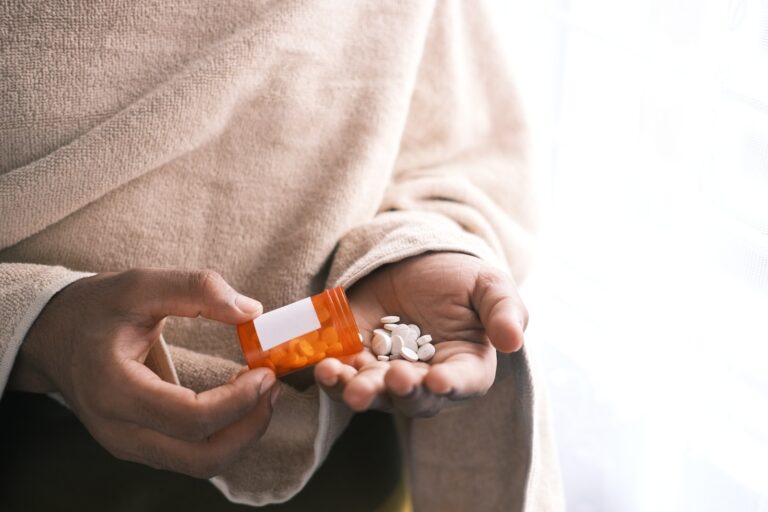According to the CDC, sexually transmitted infections (STIs) cause pain and suffering for millions of people every year. They also cost the health system billions.
One study found that giving men doxycycline within 72 hours of unprotected oral or anal sex resulted in 70-75% fewer cases of chlamydia and syphilis.
What happens if you have unprotected sex while taking doxycycline?
Unprotected sex can lead to a variety of health risks, including the spread of sexually transmitted diseases (STDs) and unwanted pregnancy. Many STDs can be treated with antibiotics, including doxycycline. However, some, such as HIV and herpes, cannot be cured and can have serious long-term health consequences.
Studies have shown that using doxycycline post-exposure prophylaxis (or Doxy PEP) within three days of unprotected sex reduces the risk of gonorrhea, chlamydia, and syphilis by more than 60%. This treatment is easy to administer and costs little or nothing.
People should still practice safe sex, use a condom, and get regularly tested for STDs. They should also be vaccinated against HPV and hepatitis B, which can be spread through sexual contact.
After doxycycline is administered, people should not have sex for 7 days. This gives the medicine a chance to clear up and ensures that they don’t pass chlamydia or gonorrhea onto their partner(s). They should also have all of their recent sexual partners test and treat themselves, if needed. A specialist sexual health adviser can help them contact their partners or arrange for a test and treatment kit to be sent to them.
Unprotected sex can lead to a variety of health risks.
Studies have shown that taking a low-cost antibiotic like doxycycline within 72 hours of condomless sex can dramatically reduce the risk of certain sexually transmitted infections, including chlamydia and gonorrhea. This method of prevention is called post-exposure prophylaxis, or PEP. During PEP, participants are instructed to take two 100-mg doses of doxycycline within 24 hours of unprotected oral or anal sex.
In addition to reducing the chance of an infection, PEP can also prevent unplanned pregnancy. This is especially important because unplanned pregnancies can lead to emotional and financial stress, as well as complications during childbirth.
However, PEP is not a perfect solution. For instance, some of the bacteria that cause STIs can quickly become resistant to tetracycline, a group of antibiotics that includes doxycycline. This resistance can make it more difficult to treat the infections later on.
Still, experts are optimistic that doxycycline can help prevent STIs. According to Jeffrey Klausner, a professor of clinical population and public health sciences at the University of Southern California, doxycycline could offer a new way for people to protect themselves from bacterial STIs.
Unprotected sex can lead to unwanted pregnancy.
Sexually transmitted infections (STIs) such as gonorrhea, chlamydia, and syphilis can be prevented with the use of condoms. However, they are often not used correctly. Unwanted pregnancy can have serious long-term health consequences.
The low-cost antibiotic doxycycline has shown promise as an effective method of STI prevention. A recent study showed that doxycycline post-exposure prophylaxis (PEP) reduced bacterial STI transmission by 60-70%. It also significantly reduced STI infection rates among men who have sex with men and transgender women who have sex with males.
However, further research is needed to test this approach in a wider variety of populations. The CDC is expected to release guidelines on doxycycline PEP in 2023.
Women who frequently take antibiotics for thrush may be destroying important vaginal flora that can help protect them against urogenital infections, including STIs. The best way to prevent STIs is to practice safe sex, discuss all medications with your doctor, and get tested regularly for STDs. The CDC recommends testing for chlamydia, genital herpes, and HIV every six months. You can get free STI tests at your local healthcare clinic or through postal testing services.
Unprotected sex can lead to feelings of guilt and shame.
Besides the physical health risks of unprotected sex, there are also psychological effects that can occur. For example, feelings of guilt and shame can arise from sexual encounters that were not consensual. These feelings can have a negative impact on a person’s overall mental and emotional health.
Sexually transmitted diseases (STDs) are rising due to declining condom use and inadequate sex education. STDs can cause serious complications, including genital warts, infertility, and HIV infection. To combat the rising epidemic, doctors are turning to an old antibiotic called doxycycline for PEP (pre-exposure prophylaxis).
A recent study published in the New England Journal of Medicine found that doxycycline can prevent chlamydia, gonorrhea, and syphilis. The randomized open-label study enrolled more than 500 people at HIV and sexual health clinics in San Francisco and Seattle. The participants were given doxycycline within 72 hours of unprotected sex. The results showed that those who took doxycycline had a 90% reduction in chlamydia transmission and an 80% reduction in syphilis, gonorrhea, and HIV infection.
Unprotected sex can interact with other medications.
A small clinical trial has shown that taking a single dose of antibiotic doxycycline within three days after unprotected sex significantly reduces sexually transmitted infections like gonorrhea, chlamydia and syphilis. The antibiotic doxycycline is commonly used for other bacterial infections, but when taken as pre-exposure prophylaxis (PEP) it can dramatically decrease the infection rate of STIs among those at high risk for developing them.
In the study, men who took doxycycline after sex had a 73% lower chance of contracting STIs compared to a control group. This finding has been exciting to many researchers and could be a game-changer in the fight against STIs.
While the CDC is encouraged by the results of this study, they are not yet recommending that this form of PEP be widely used. They are urging that more research be done on the specific health benefits and risks of this medication, including possible side effects, to ensure it is safe and effective in a diverse range of populations. This medication can also interact with certain medications, including birth control pills, so it’s important to always discuss all of your medications and supplements with your doctor before starting any new treatment.
See Also:



